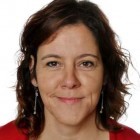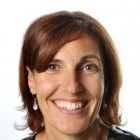Unconference OPN19
MOOCs in Schools: Kick-starting Lifelong Learning?
Date Thursday, Dec 3 Time – Room: Lincke
Learn about a pilot that aims to do just this by equipping students with languague and digital skills for further education and future workplaces. The main objective of this interactive session is to engage in a dialogue on how the experience can be optimised for other settings and sectors.
Moderators

Inge de Waard
Researcher and Explorer, The Open University, UK
My professional journey (Institute of Tropical Medicine - Belgium, Athabasca University - Canada, The Open University – UK, and Women's gender equality movement - Belgium) immersed me in online and mobile learning from 1999 onward. I have set-up, coordinated and developed several online and mobile learning projects, always with a focus on participation and durability. These projects involved partners and individuals from both the Northern (Canada, United States, Italy, Belgium, Ireland, Germany, UK) and Southern regions (South-Africa, India, Peru, Morocco). As an avid enthusiast of open science, I am an active international speaker giving keynotes and guest lectures, as well as providing knowledge input (and consequently receiving lots of input) at seminars, SIGs and workshops.
Enlightened by the first connectivist MOOCs, I have set up one of the first MOOCs on mobile learning, called MobiMOOC (2011 & 2012), enabling learners to realize their own project. In 2013 I decided to investigate FutureLearn MOOCs and specifically how individual learners with online learning experience self-direct their learning, which resulted in obtaining a PhD at the Open University in UK.
I have come to realize that there is no single solution for all. The diversity which is at the core of nature’s success, seems to be replicated by the diversity in learning preferences and ways to achieve learning success in humans. But above all, I am a social learner, so feel free to talk to me.
Links

Heidi Steegen
Director, Guldensporencollege, Belgium
As a headmaster of a secondary school, Heidi takes a strong interest in improving learning skills, learning in (international) context, education innovation and languages.
Her school, Guldensporencollege Kaai in Kortrijk, takes a strong interest in innovation. E.g. It was one of the first schools in Belgium to experiment with Content and Language Integrated Learning (2007-2011) and it is currently implementing CLIL French and CLIL English throughout the school. The school has recently started a pilot project in 5th year which combines CLIL with MOOCS in French or English. Its aim is to improve language skills and lifelong learning skills at the same time.
Up to 2012, Heidi was a teacher of English and Dutch at the same school. She was part of the CLIL pilot team and was involved in several Comenius exchange programmes within Europe.
Heidi holds a master’s degree in English and Dutch.
Links

Kathy Demeulenaere
Teacher, Guldensporencollege, Belgium
After my secondary education, I obtained my Master degree as translator English and Italian at the Lessius Hogeschool in Antwerp in 1994. I worked for a travel agency between 1994 and 2000.
In 2000, I obtained my certificate as a teacher in higher secondary education.
Since 2000, I have worked as a teacher at the Guldensporencollege in Kortrijk, Belgium. I mainly teach Dutch and English, but I have often been involved in innovative projects such as 'De proeftuinen', where we explored new ways of teaching and assessment.
This year, our school has entered the CLIL-project (Content and Language Integrated Learning). In this project, we teach non-language subjects such as religion, history and human sciences in French or English (instead of Dutch).
For our fifth form pupils, we combine the CLIL-project with MOOC classes, in which we want to enhance the digital learning skills of our pupils.